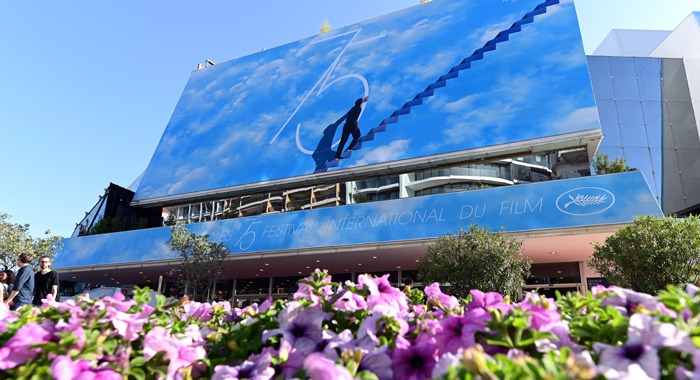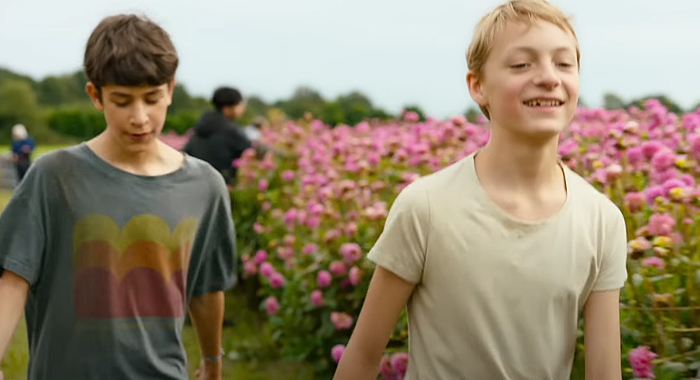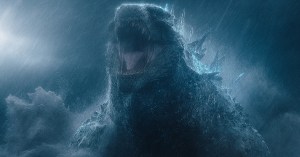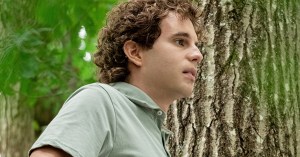The Six Best Films of the 2022 Cannes Film Festival
With the festival officially in our rearview mirror, we highlight the films most likely to draw attention as the year continues.

(Photo by Joe Maher/Getty Images)
The 75th edition of the Cannes Film Festival has concluded, and we are officially off to the races for the 2022-2023 awards season. This year, the festival celebrated its 75th anniversary and feted stars Forrest Whitaker, Javier Bardem, and the man of the moment, Tom Cruise, with honorary Palme d’Ors, but it was Swedish director Ruben Östlund’s Triangle of Sadness that took home the official top prize, making it the third Palme d’Or winner for indie producer Tom Quinn and Neon and the second for Östlund, who won in 2017 for The Square.
Top Gun: Maverick and the new Elvis biopic from Baz Lurhmann were the marquee titles of the festival, and after sampling the lineup, we found a few films that surprised and unfortunately more than a few that disappointed. Claire Denis’ The Stars at Noon took home the Grand Prix prize and the latest efforts by George Miller, Ethan Coen, and James Gray were all well received, but we fear most if not all of them will wilt after the Cannes bubble bursts.
Looking over the lineup this year, we could see a clear preference by festival programmers to find films that reflected our bleak and increasingly polarized socio-political climate. It’s not the first Cannes film festival to bow under the shadow of war and political turmoil, but the Russian invasion of Ukraine, our climate crisis, and the likelihood of economic recession have colored just about every film presented. However, outside of all the gloom, the overarching sentiment was more akin to an affirmation, as the storied festival appeared to spout the refrain, “Cinema is back!”
That sentiment was on the more commercial side with Elvis, Top Gun, and the very marketable Triangle of Sadness and The Stars at Noon among the honorees, but only a handful of entries will be significant players in the ’22-’23 awards season. Despite securing his second Palme d’Or in just 3 years, Östlund still has a long way to go to match Bong Joon-ho’s Palme d’Or- and Best Picture-winner Parasite. He is more likely to take the route of Julia Ducournau’s Titane, which was the toast of Cannes and won the Palme d’Or last year but fizzled with audiences. For the final verdict on that, we will just have to wait and see. In the meantime, read on for our picks for the six best films we saw at the Cannes Film Festival.
Corsage
(2022)
Most international audiences came to know Vicky Krieps from her work as the ingenue-turned-femme fatale in Paul Thomas Anderson’s Phantom Thread, a stunning debut that earned her worldwide recognition and led her to roles with directors M. Night Shyamalan, Mia Hansen-Løve, and Barry Levinson, among others. This year she returned to Cannes with Corsage, a historical fiction about Empress Elisabeth Amalie Eugenie, arguably the most famous woman of her era. The Empress, who secured the Prussian empire with her marriage to Franz Joseph I, was a constant source of fame, fashion, and controversy during her lifetime, and the film follows her roughly 20 years after she was crowned Queen consort. At age 40, Empress Elizabeth, once idolized for her beauty and renowned for inspiring fashion trends, finds herself increasingly obsolete and isolated. Her son is poised to take over the empire, and her husband, who once worshipped her as the savior of his empire, is now more often ashamed and exhausted by her eccentric ways. Krieps’ performance is equal parts Marie Antoniette and Gena Rowlands in A Woman Under the Influence, and it earned her an Un Certain Regard Best Performance Prize; with a little luck she could ride that win to a Lead Actress nomination at the Oscars.
Triangle of Sadness
(2022)
If the whispers from the Palais — and the presence of ties in the final awards — are any indication, the jury deliberation was slightly contentious this year. The jury, including president Vincent Lindon, Jeff Nichols, Asghar Farhadi, Rebecca Hall, and Noomi Rapace, did however manage to come to a consensus on the Palme d’Or, selecting Ruben Östlund’s Triangle of Sadness. The sprawling modern fable on entitlement and power dynamics is our pick for the best of the fest and a dark horse pick for the Best Original Screenplay Oscar. The film follows a group of privileged guests aboard a luxury yacht who have their entire social standing rocked when they are shipwrecked and only the housekeeping manager is equipped to survive their dire circumstances. Triangle of Sadness did not enjoy a rapturous critical response, but it was still one of the most talked-about films of the festival. Of all the entries here, it has the best chance for internet fame, given the absurdist take on current world problems and the virality of the concept — and we mean viral in both the digital and digestive sense. Harris Dickinson (who we had marked as one to watch since his turn in Beach Rats), Woody Harrelson, and Charlbi Dean Kriek should all see much-deserved global recognition from their efforts here, but character actress Dolly De Leon is the name we want everyone to take note of as she has skyrocketed to the top of our early predictions for Supporting Actress.
R.M.N.
(2022)
R.M.N was the most surprising film of the festival, with its delicate, quiet brilliance. This film, along with award winners EO and Holy Spider, all have chances to be national selections and eventual Oscar nominees, but out 0f that group, we are singling out R.M.N. as an exceptional film. A sleepy and deeply xenophobic Romanian village serves as the flashpoint for the globalization crisis in Europe. A local bakery desperate for revenue and labor uses EU funds to stay in business, and in return, it must hire foreign workers. The townspeople who have long rejected bakery jobs as undesirable/low-paying work are suddenly outraged that foreign hands would be involved in the production of their local bread. R.M.N. highlights the issues of sudden immigration and transit employment, and the sinister truth of what the townspeople have brought upon themselves with their bigotry is left as a haunting echo in the story’s final frames. This is one you should make a point to see when it is released later this year.
Broker
(2022)
When Hirokazu Kore-eda set out to cast his latest feature, his primary motivation was to cast South Korean mega-star Song Kang-ho and re-team with his dollhouse star Bae Doona. Broker, a dramedy about Korean “baby brokers” who kidnap abandoned babies to sell them to unsuspecting childless couples, is another hilarious take on a timely political issue. The Asian baby trade, which was upended by the global pandemic, has come under scrutiny in recent years, with many questioning the morality of these programs that allow any couple — with the right amount of money — the chance to buy a child. The ramifications of this industry are sending ripple effects throughout Asia, and Kore-eda lampoons and laments the realities of the industry to incredible cinematic effect. Just like his Palme d’Or winner Shoplifters, Kore-eda blends comedy with tragedy and celebrates the dark joy of found families. Securing Song Kang-ho his first major solo acting prize outside of Korea could also signal his return to Oscar night, this time with a solo nom.
Decision to Leave
(2022)
If you enjoyed the procedural aspect of Park Chan-wook’s Oldboy or the grand romance of The Handmaiden, you will find a home with his latest, Decision to Leave, a return to his crime thriller/romance roots. Park has explored complicated relationship dilemmas since as far back as his feature debut, 1992’s The Moon Is… the Sun’s Dream, and Decision to Leave is again a thrilling romance set against an impossible choice that demands repeat viewing. Underneath its taut thriller trappings is a quiet romance that will have you questioning motivations and alliances through every narrative turn. A bloodless Park Chan-wook is not something that many will rush to, but it was one of the highest-rated features on our Cannes Scorecard, so don’t dismiss it even it you would have preferred a “vengeance”-type entry.
Close
(2022)

(Photo by Cinetic Marketing)
Lukas Dhont’s first film, 2018’s Girl, proved a successful albeit complicated debut. The film, which won awards at Cannes, was later lampooned by critics of the LGBTQ community, as its star was a straight male playing a trans woman and the themes were deemed insensitive. Despite this mixed reception, one thing everyone noted was that the filmmaker had talent, and we were all anxious to see what he did next. His next entry, Close, was selected for the competition this time around and took home the Grand Jury prize tied with famed French director Claire Denis’s Stars at Noon. The story follows Léo and Rémi, two 13-year-old boys who suddenly grow apart after a traumatic event. The film explores the loss of innocence and the dynamics of male friendships as childhood gives way to adolescence. It is loosely based on psychologist Niobe Way’s book Deep Secrets, which explores adolescent male intimacy. This looks to be a legitimate threat for Best International Feature at the Academy Awards, so we will be keeping an eye on it, particularly for the screenplay penned by Dhont.
Thumbnail image by Neon






